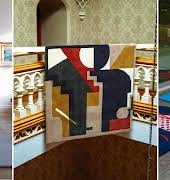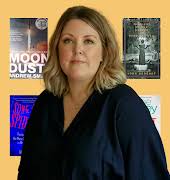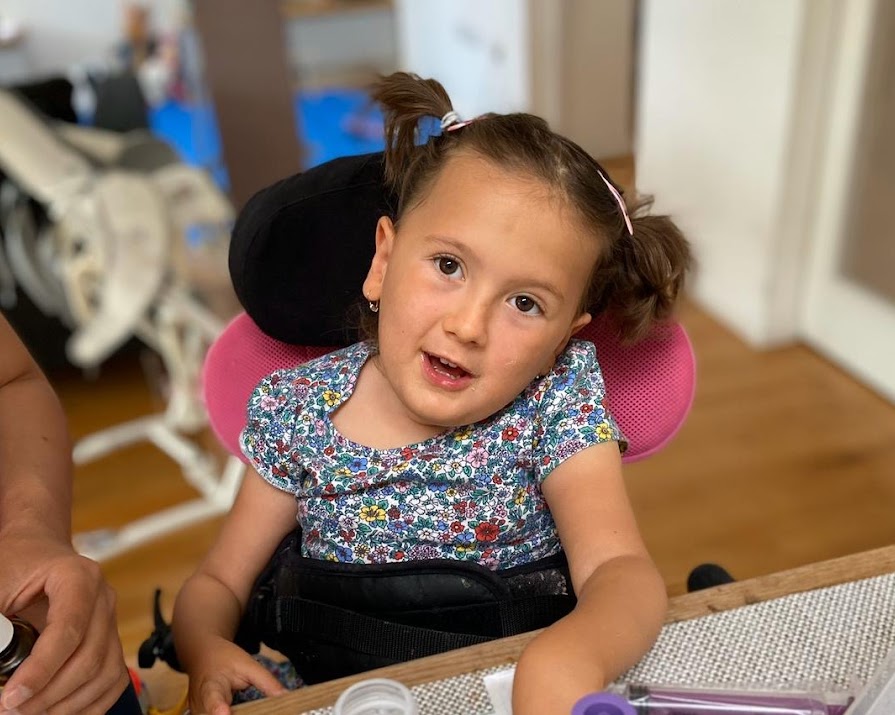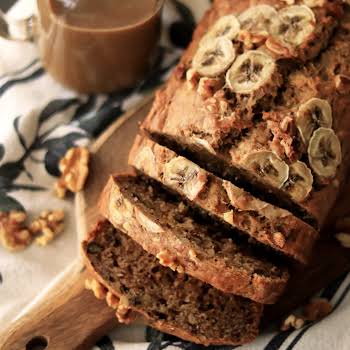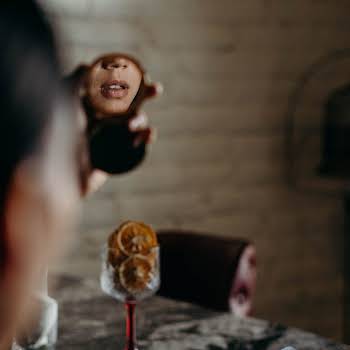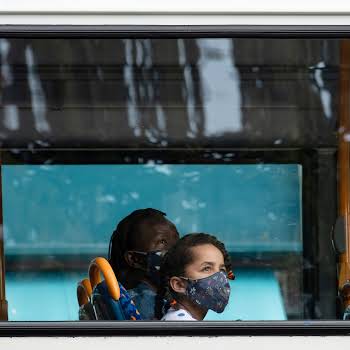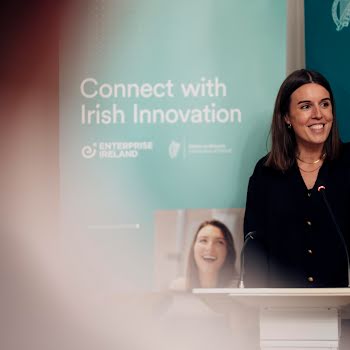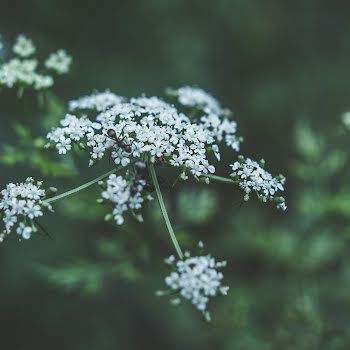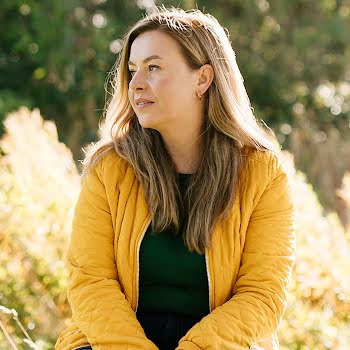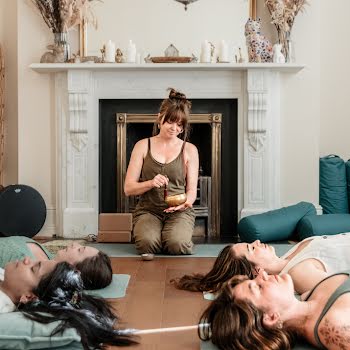
‘The world has adjusted to our normal’ – how it feels to have a child with special needs during Covid-19
By Lizzie Gore-Grimes
05th Oct 2020
05th Oct 2020
Social isolation, hand sanitiser and heightened anxiety – new norms to most of us but all too familiar to families across Ireland caring for children with special needs. Lizzie Gore-Grimes talks to the Lannens and the Duffys to find out how they are coping and how we can help.
“For the past five years, we’ve been living in fear of the human coronavirus,” states Stephen Lannen. Although the particular coronavirus he is referring to is not Covid-19, but your regular, common or garden human coronavirus – aka the common cold.
Nellie Lannen
Stephen and Brigitta Lannen live in Dublin with their daughter Nellie (5) and her little sister Molly (18 months). Nellie was diagnosed with a rare condition called SMA type 1 (Spinal Muscular Atrophy) in 2015, when she was just 6 months old. “Most children with SMA type 1 die before their second birthday,” explains Stephen. “Because of muscle weakness, they are not able to cough, gag or swallow and have difficulty breathing.” This condition makes them incredibly susceptible to chest infections and pneumonia as they cannot cough to get rid of phlegm or mucus the way another child would.

Miracle drug
She goes in for her shot every four months and it has been an absolute game-changer for her – and us
Stephen goes on to explain that in most instances if a young child with SMA contracts any kind of cold or chest infection, they will be rushed into ICU to be intubated and put on a ventilator, and often this tragically results in their own capacity to breath getting weaker and weaker and they don’t recover.
Thankfully, due to the intervention of a miracle drug, Spinraza, which the Lannens, together with the McHugh family from Blanchardstown (whose daughter Lara also has SMA type 1) had to fight for access to in 2017, Nellie has gone on to celebrate her fifth birthday this year. “She goes in for her shot every four months and it has been an absolute game-changer for her – and us,” says Stephen.
Comfort in strange places
Instead of feeling like the odd ones out, we are now part of the shared experience, the world has adjusted to our normal
Most recently, the advent of Covid-19 has had a huge impact on their lives. “In a weird way I found it a little bit comforting,” admits Nellie’s mum, Hungarian-born Brigitta Lannen. “Instead of always feeling like the odd ones out, we are now part of the shared experience, the world has adjusted to our normal.” Nellie’s vulnerable health meant that fastidious hand-washing and limited socialising have always been the norm. “We never leave the house without hand-sanitiser,” says Stephen, “and in the winter we are essentially self-isolating, as there are so many colds going around.”
Emily Duffy
I’m not going to lie, when everyone else was locked down I felt a huge sense of relief
Gillian Duffy, whose daughter Emily is undergoing treatment for cancer, relates to this experience. “While Emily is going through her treatment, she is hugely vulnerable to infection, so we have to be so careful about where she goes and who she sees. What everyone else has been trying to get used to with the hand-washing and the self-isolation was already very much a part of our daily routine.
“I’m not going to lie, when everyone else was locked down I felt a huge sense of relief. More often than not, when we were going to the shops or taking a walk in the past, I would see people coughing and spluttering all over the place, with no concept of cough hygiene and it would really upset me.”

Happy, positive home environment
Emily, almost 7, was diagnosed with stage-four high risk Neuroblastoma in November 2016. For two years following her diagnosis she went through two very tough years of intensive treatment in Crumlin, before getting a reprieve from her illness. But then a year later, in 2019, she relapsed and has had to start it all over again.
For both the Lannen and the Duffy family – ensuring their daughters get the best care possible and providing the most positive, happy home life for them is the top of their priority list.
A community of care
When we first learned of Nellie’s diagnosis, we didn’t know what to do but Jack & Jill were the first people in the door
“Because Nellie can’t swallow she needs her saliva suctioned and needs to be monitored at all times; she also needs regular meds, specialist physio and stretching and a Bipap machine at night to sleep – in other words 24-hour care,” Stephen explains. In a normal week, the Lannens would have a number of different nurses coming to help them at home – a nurse to be with Nellie during the night to turn her regularly and monitor her breathing and another nurse to help until lunchtime.
“When we first learned of Nellie’s diagnosis, we were in a complete daze,” recalls Stephen. “We honestly didn’t know what to do but Jack & Jill were the first people in the door. Sinead (from Jack & Jill) just turned up at our door and explained to us that they would provide 80 hours per month of home-nursing support. I remember in our naivety thinking that that sounded like a lot.
“They were an absolute life-saver. On top of all the support they gave us from an emotional stress point of view they helped co-ordinate with the HSE. Between them and Gail McGrath – the Temple Street Hospital palliative outreach nurse, we could never have gotten to where we are today with Nellie.”

Home is best
Stephen goes on to explain that home-nursing was not a service provided by the HSE before the Jack & Jill foundation fought for it. The charity was founded in 1997 by Jonathan Irwin and Mary Ann O’Brien after their own son Jack got sick, and through the experience of caring for him at home with the help of friends and family, they realised the vital need for families to have nursing support to care for children in their own homes.
Stephen gets quite emotional when he talks about the harsh reality that if it we turned back the clock 30 years, and if it weren’t for the Jack and Jill foundation’s push for proper home-care Nellie would most likely be in a care home or institution instead of being at home with her family and baby sister. “It’s hard to put into words the difference they have made to our lives.”
Playing for smiles
Without Carol (the play specialist in St. John’s Ward) and the nurses, I wouldn’t have gotten through Emily’s first week back in treatment
Gillian too cannot say enough about the support they have received from Ireland’s Childhood Cancer Foundation, a charity founded in 2013 by parents of children with cancer. One of the key services they provide is a dedicated play specialist for St. John’s Day Ward in Crumlin.
“Without Carol (the play specialist in St. John’s Ward) and the nurses, I wouldn’t have gotten through Emily’s first week back in treatment,” says Gillian. “Carol provides such vital care, playing with the children, distracting them when things are tough and using special games and toys to help explain the treatment to them. She lifts all of us up when we need it most.”

Childhood Cancer Foundation
The Foundation needs funding urgently to help support families all over Ireland at the frontline of this dreadful disease
Laura Cullinan, voluntary Director with Childhood Cancer Foundation, and herself a parent of a child who survived cancer, goes on to explain the vital need the charity has for support right now. “The Foundation needs funding urgently to keep these services going – services that help to support families all over Ireland at the frontline of this dreadful disease.
“This is a very scary time for everyone, but coupled with the pressures and worry of a very sick child and for some families the needs of other siblings, the services provided by Childhood Cancer Foundation go in some small way to alleviate the stresses and strains while also lessening the psychosocial side-effects from treatment, which can be very painful.”
Early diagnosis
“We’re also now aware of a worrying decrease in the number of diagnosis which unfortunately is unlikely to be attributed to a drop in incidences, but instead a responsive reluctance for people to attend their GP when they do start noticing symptoms of difficulties.
“With my daughter Isobel we were very fortunate to have had the benefit of early diagnosis and it’s vital that every child receives the same chance to both improve survival rates but also to help avoid harsher treatment protocol, which is necessary when the disease has a chance to progress. I would urge anyone who is concerned to please visit your GP because early diagnosis is so important.”
A lifeline cut
It’s completely exhausting when you have no break at all
For the Lannen family, the arrival of Covid-19 meant the loss of the majority of their nursing support – their lifeline. “We have one nurse who we are very close to who helps us two nights a week, we are the only family she is looking after so that’s just enough to help us get through. But it’s completely exhausting when you have no break at all.
“Our sleep is very broken attending to Nellie and little Molly too, then you have a full day of nursing care ahead of you before you even begin to be able to hang out or go for a walk as a family. I can’t emphasis enough how vital the support we have received from Jack & Jill, Enable Ireland and LauraLynn Lynne has been to us as a family.”
An SOS from Jack & Jill
“We are doing everything we can right now to continue to provide critical support and end of life care to 340 extra special children throughout the country,” says Carmel Doyle, CEO, Jack & Jill Foundation. “The way we provide that support has changed to suit our families (in line with HSE guidelines). Over 30% of our families continue to avail of their respite/nursing service at home, while others are self-isolating and get vital phone support from our specialist children nurses.
“But Covid-19 has had a devastating impact on our fundraising – closing our nine charity shops and cancelling most of our fundraising events overnight. That means Jack & Jill is facing a massive shortfall of €500,000, while the 340 children and families under our care continue to rely on the support of the charity now more than ever.”
New worries for us, familiar to them
Since Covid-19, not all of us have felt the devastation of loss but each one of us has experienced the heightened anxiety, the see-saw of uncertainty, the challenge of social isolation and the strange new fear of a grubby door handle.
New worries for us, familiar foes to these families, who – Covid or no Covid – battle on regardless.
However, the virus is threatening the very support services that make their lives liveable – the lifelines that provide the light, the laughter and the holiday respite care.
But we can help, that’s the good news story here. Just one small donation to any or all of the services below will make a huge difference to children like Nellie and Emily all over Ireland.
To support Jack & Jill, donate €4 by texting the words ‘We Care’ to 50300 or donate any amount through their website here. Every €16 donated provides a family with 1 hour of home nursing support. (Text costs €4. Jack & Jill will receive a minimum of €3.60. Service Provider: LIKECHARITY. Helpline 076 6805278.).
You can also support them by purchasing a piece of original art through Part Two of their brilliant Incognito online art sale starting at 10am on 28th May. Donate and support The Childhood Cancer Foundation here. Donate and support Enable Ireland here. Donate and support LauraLynn here
Read more: Simple pleasures and patience: IMAGE staff reflect on lessons they’ve learned in the last 9 weeks
Read more: Everyone thinks my narcissistic mother-in-law is amazing. I feel so alone
Read more: Esther O’Moore Donohoe: I wanted hugs, I wanted friends and family. I wanted a McFlurry and a 3 in 1





